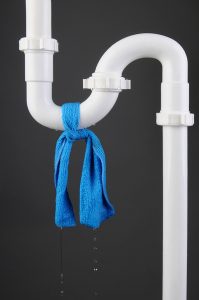 The tough thing about hidden leaks is, well, they’re hidden! This means they can do a lot of damage, since it may be days or even weeks until you realize the problem is even occurring. The pipes tucked away in the various areas of your home, like the basement, inside a cabinet under the sink, or behind walls, tend to hide their problems well.
The tough thing about hidden leaks is, well, they’re hidden! This means they can do a lot of damage, since it may be days or even weeks until you realize the problem is even occurring. The pipes tucked away in the various areas of your home, like the basement, inside a cabinet under the sink, or behind walls, tend to hide their problems well.
Fortunately, there are signs you can watch out and listen for. Being aware of these indicators could be the difference between a minor repair from our professional plumbers or an emergency service call to our team as well as carpenters to help fix your drywall and flooring after a leak has gone on for too long. Read on to learn what these signs are!

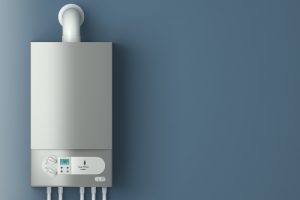 Storage tank water heaters are large, always noticeable, and can even be a little noisy. In other words, it’s pretty hard to not pay some attention to a conventional water heater, if that’s what you have in your home. You likely know that it needs occasional maintenance from a professional
Storage tank water heaters are large, always noticeable, and can even be a little noisy. In other words, it’s pretty hard to not pay some attention to a conventional water heater, if that’s what you have in your home. You likely know that it needs occasional maintenance from a professional 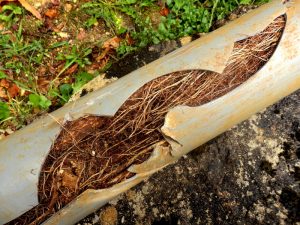 Have you ever wondered why your plumbing system’s sewer line is buried beneath your yard? You might have just assumed it looks more attractive this way. And that’s true, but the real purpose of this placement is for safety and functionality.
Have you ever wondered why your plumbing system’s sewer line is buried beneath your yard? You might have just assumed it looks more attractive this way. And that’s true, but the real purpose of this placement is for safety and functionality.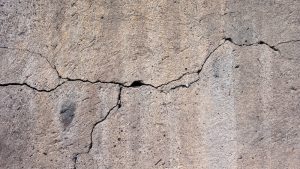 There is no plumbing system anywhere that is 100% flawless. At some point or another, you’ll need a clog cleared out or a pinhole leak repaired. You may even need a sewer line cleared out of tree roots or a leaky faucet replaced. There is one plumbing problem in particular though that is especially insidious, and that’s a slab leak.
There is no plumbing system anywhere that is 100% flawless. At some point or another, you’ll need a clog cleared out or a pinhole leak repaired. You may even need a sewer line cleared out of tree roots or a leaky faucet replaced. There is one plumbing problem in particular though that is especially insidious, and that’s a slab leak. Do you know how to watch for the biggest signs that you have a plumbing problem on your hands? Some signs are obvious of course—like water gushing from a burst pipe across your kitchen floor, a toilet that won’t flush, or a clogged up kitchen drain that a plunger has no hope of relieving.
Do you know how to watch for the biggest signs that you have a plumbing problem on your hands? Some signs are obvious of course—like water gushing from a burst pipe across your kitchen floor, a toilet that won’t flush, or a clogged up kitchen drain that a plunger has no hope of relieving.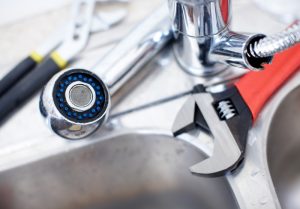 If we called your residential plumbing system complex, what do you think we’d call your commercial plumbing system? Especially if you run a kitchen? There are a number of components that must run efficiently, but also effectively, safely, and cleanly.
If we called your residential plumbing system complex, what do you think we’d call your commercial plumbing system? Especially if you run a kitchen? There are a number of components that must run efficiently, but also effectively, safely, and cleanly.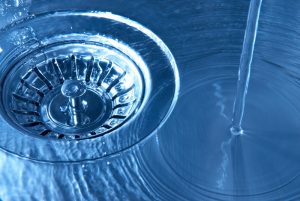 “Wait, you want me to do what?”
“Wait, you want me to do what?”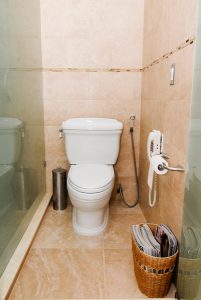 Are low flow plumbing fixtures really all they’re cracked up to be? In a word, yes.
Are low flow plumbing fixtures really all they’re cracked up to be? In a word, yes.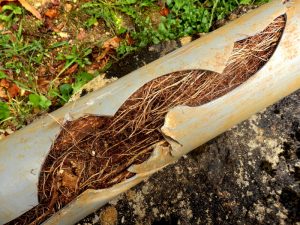 In our area, it’s very rare that homeowners live without basic modern plumbing. Given that, this means you have a sewer line that runs beneath your property, where it connects to various drain lines in your home. This underground location of your sewer line protects it from damage (for the most part). When trouble does pop up, they can be a pain to repair.
In our area, it’s very rare that homeowners live without basic modern plumbing. Given that, this means you have a sewer line that runs beneath your property, where it connects to various drain lines in your home. This underground location of your sewer line protects it from damage (for the most part). When trouble does pop up, they can be a pain to repair. The plumbing system of your home is massive, and the smallest of problems can easily go undetected for months or longer. Something like a pinhole leak or the use of corrosive chemicals may seem really minor now, but give it time to build up and eventually you’ll have a plumbing emergency on your hands. Unfortunately, not many homeowners know how to properly take care of their plumbing pipes—in particular their drains.
The plumbing system of your home is massive, and the smallest of problems can easily go undetected for months or longer. Something like a pinhole leak or the use of corrosive chemicals may seem really minor now, but give it time to build up and eventually you’ll have a plumbing emergency on your hands. Unfortunately, not many homeowners know how to properly take care of their plumbing pipes—in particular their drains.